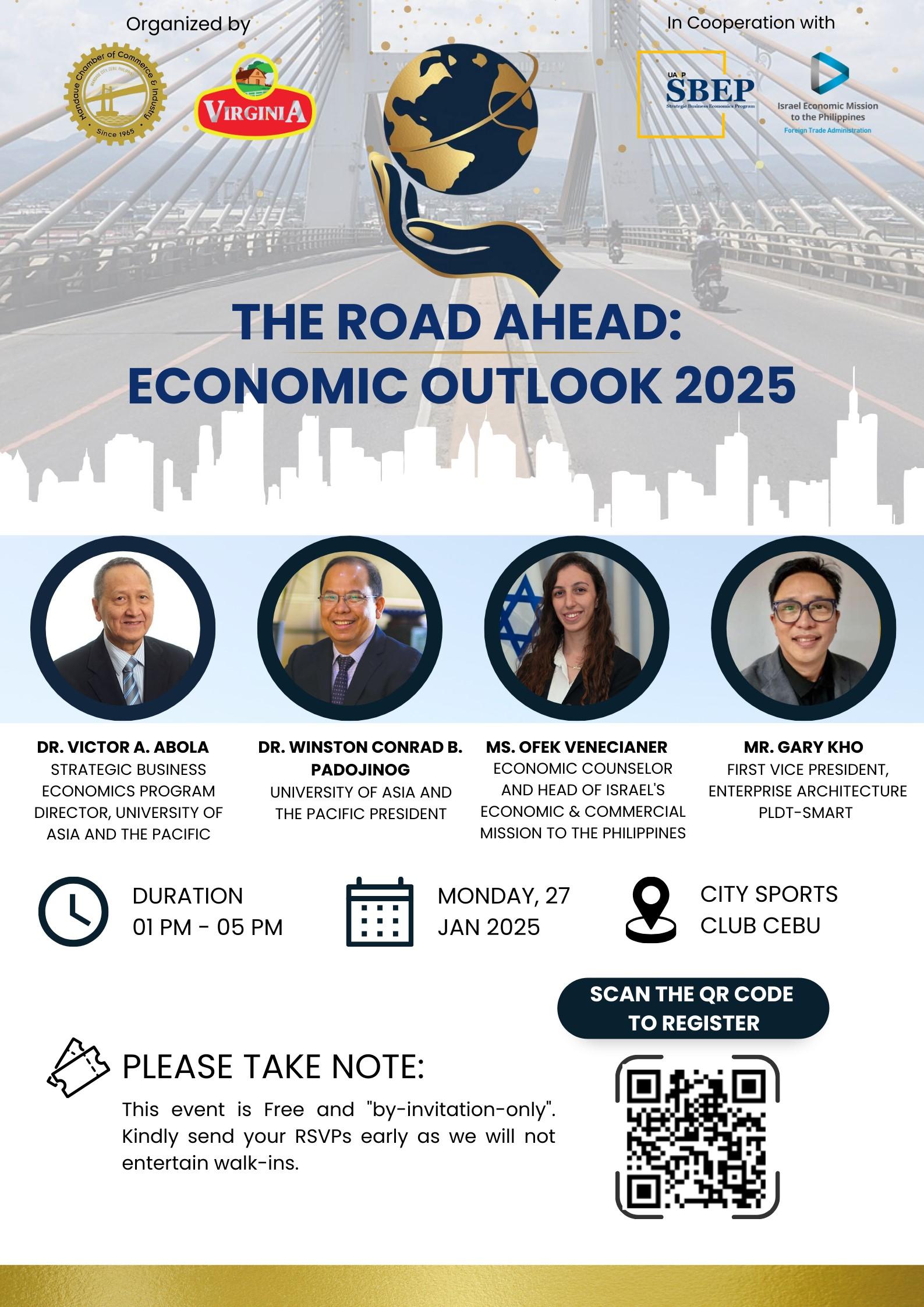
The Changing Face of Philippine Industries
Dr. Padojinog’s talk, “Shifting Structures of Philippine Industries: Where are we Going and Should be Going?”, highlighted key factors driving industrial transformation. The liberalization of markets and the impact of importation-driven inflation have reshaped the economic playing field. However, infrastructure deficiencies—such as high power costs and sluggish internet connectivity—remain major hurdles, particularly for manufacturing.
Governance perception also plays a crucial role in economic confidence, influencing both local business decisions and foreign direct investments (FDIs). The service sector has become the dominant force, with industries such as retail, logistics, banking, IT-BPO, and education leading the way. Meanwhile, the manufacturing sector, once a major economic driver, has been shrinking—with the notable exceptions of food and beverage production and construction-related materials.
Emerging Global and Domestic Challenges
Looking ahead, Dr. Padojinog underscored the external and internal forces shaping the Philippine economy:
- Protectionist policies and selective immigration – The rise of “Trumpism” and global economic nationalism could limit market access for Philippine exports and talent mobility.
- Artificial intelligence and automation – Machine learning and neural networks are reshaping industries, requiring businesses to adapt rapidly.
- Food and water security concerns – With the highest climate risk index in the region, the Philippines must address sustainability challenges.
- Lack of foreign direct investments – The country’s difficulty in attracting international investors could hinder growth and competitiveness
How the Philippines Should Respond
To navigate these challenges, Dr. Padojinog emphasized the need for a strategic approach to economic resilience:
- Strengthening the service economy – The relatively low exit barriers in this sector offer flexibility, but businesses must continuously adapt.
- Investing in skills development – Retooling, reskilling, and upskilling the workforce is critical to keep pace with technological advancements.
- Future-proofing education – A curriculum focused on emerging industries and critical thinking will equip future professionals for an evolving job market.
- Building critical industries – Key sectors such as food security, mining, and energy resources must be developed to counter geopolitical tensions and achieve self-sufficiency.
- Enhancing digital infrastructure – A secure and robust digital highway is essential for economic progress.
- Ensuring access to safe water – Sustainable water management must be a national priority.
- Boosting self-sufficiency – Reducing import dependence will help stabilize the economy and foster local industry growth.
- Attracting foreign investments – Policy reforms and governance improvements are necessary to make the Philippines a more attractive investment destination.
Industry Strategies for a Competitive Future
To sustain economic momentum, industries must adopt forward-looking strategies:
- Infrastructure and human capital investment – Developing a skilled workforce and modern infrastructure will boost productivity.
- Improved governance – Transparency and efficiency in policy-making will enhance investor confidence.
- Reliable and competitive energy supply – Addressing high energy costs will strengthen the manufacturing sector.
- Industry diversification – Expanding into critical industries will reduce dependence on volatile sectors.
- Accelerating digitization – Investments in information technology and data capabilities will drive efficiency and global competitiveness.
- Strategic roadmaps and incentives – Clear industry roadmaps and well-structured incentives will attract long-term investments.
A Forward-Looking Vision
Despite the challenges, the Philippine economy holds immense potential for growth and transformation. By prioritizing innovation, sustainability, and strategic investment, businesses and policymakers can pave the way for a more resilient and competitive economy. The road ahead may be complex, but with decisive action and forward-thinking leadership, the Philippines is well-positioned to navigate the future successfully.



